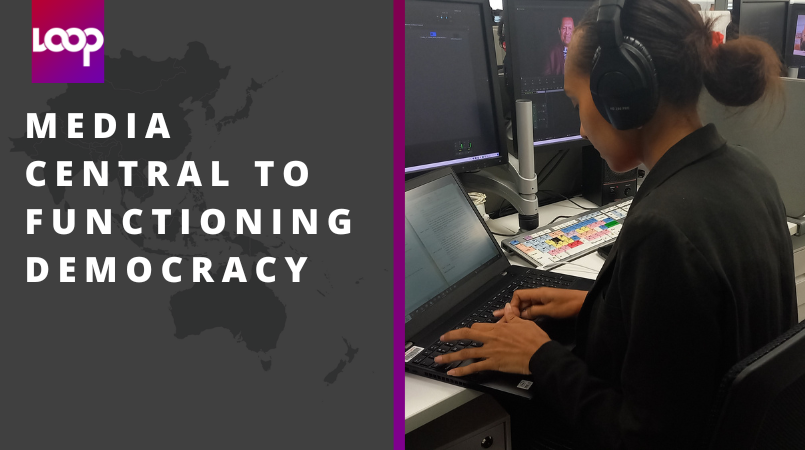
“The media is central to an effective and functioning democracy,” says Dr Amanda Watson, Research Fellow at the Department of Pacific Affairs at the Australian National University (ANU).
Dr Watson was a former lecturer of Divine Word University’s Communication Arts (Journalism) Department. Her research interests include digital technology in the Pacific, mobile phones in PNG and strategic uses of information and communication technologies in development efforts.
She has expressed concern at the limited consultation period given to gather feedback towards a draft National Media Development Policy, recently introduced by the Department of Information and Communications Technology (DICT) “as a tool for development, such as the promotion of democracy, good government, human rights, and social and economic development”.
“Ideally the media is independent; keeping a watch on government, businesses and other organisations in society. And I have mixed feelings about the policy itself, especially the very short time period of consultation,” she said.
Dr Watson, who has published various academic journals, including Mobile Media and Communication, Pacific Journalism Review and Media Asia, says the initial eleven-day long consultation period suggests that the intention of having this policy in place is not genuine.
“There is no opportunity for media to contribute to the process,” Dr Watson said.
Yesterday (Thursday,16 February 2023), Minister for Information and Communications Technology, Timothy Masiu, issued another media statement, extending consultations by another week, from Monday 20 February, 2023.
The department has been directed to facilitate a workshop for feedback within the new timeframe given.
Minister Masiu’s extension of the consultation period was in response to the Community Coalition Against Corruption and PNG Media Council expressing similar sentiments as Dr Watson.
The CCAC stated that the haste in which the government is conducting consultation on this draft policy could undermine media freedoms in Papua New Guinea.
“Extended and broader consultation is required for this as media freedoms are vital to our democracy,” the CCAC stated.
“For instance, while the abuse of social media platforms is a new issue that is given as justification for the Media Policy, there are already existing laws that address the issue without undermining media freedom.”
“The editorial independence of newsrooms is a cornerstone of a functional democracy. Undermining media freedom diminishes the role of the media as the mouthpiece of the people, holding those in power to account,” it said.
Minister for Higher Education, Research, Science and Technology Don Polye, expressed support for a free media. However, raises concerns relating to irresponsible reporting, which discredits media integrity.
“Media irresponsibility makes politicians make laws to restrain you,” he said. “But I’m not going to use emotions to block freedom of expression. I will support a free and open media.”
“(If) a (media) is irresponsible, that (media) must be punished. Not freedom of expression,” said Minister Polye. “Law is enough to prosecute people. Bring them to court of law and I think we can charge them under existing laws. I don’t’ think we should make laws to control the media. It’s not a good idea.”
The Minister also intends to visit registered universities running journalism programs to ensure programs are of quality.
Under the draft National Media Policy, DICT includes Professional Development and Regulatory Framework; all of which would need extensive consultation.
